Policies & Guidelines
At the heart of all Lauriston Girls’ School policies and guidelines there is a commitment to ensuring a safe and supportive environment.
Child Safe Standards
Protecting Young People
Lauriston Girls’ School has zero tolerance for child abuse. Everyone working at Lauriston Girls’ School is responsible for the care and protection of the children and young people within our care and reporting of information about suspected child abuse.
All members of staff share in the responsibility for the prevention and detection of child abuse, and must:
- Familiarise themselves with the relevant laws, Code of Conduct and Lauriston Girls’ School’s policies and procedures concerning child protection, and comply with all requirements;
- Receive the School’s Code of Conduct for staff;
- Take all reasonable steps to protect children from abuse;
- Report any reasonable belief that a child’s safety is at risk to the Principal or delegate;
- Teachers and nurses fulfil their obligations as mandatory reporters;
- Report any suspicion that a child’s safety may be at risk to their supervisor (or if their supervisor is involved in the suspicion, to the Principal or delegate);
- Promote the cultural safety, participation, and empowerment of Aboriginal and Torres Strait Islander children;
- Promote the safety, participation and empowerment of children with culturally and/or linguistically diverse backgrounds;
- Promote the safety, participation, and empowerment of children with a disability;
- Provide an environment that is supportive of all children’s emotional and physical safety.
What are Child Safe Standards?
These standards fall under the Ministerial Order 1359 – Implementing the Child Safe Standards – Managing the risk of child abuse in schools and School Boarding premises and take effect as of 1 July 2022. The development of the Child Safe Standards forms part of the Victorian Government’s response to the Victorian Parliamentary Inquiry into the Handling of Child Abuse by Religious and other Non-Government Organisations.
All Victorian schools are required to operate within a ‘child-safe environment.’ Lauriston has met all the required standards for child safety and will continue to screen staff and train them to identify and report any suspected abuse. Lauriston will also work with students to make sure they also understand these important policies.
The Child Safe Standards consist of:
- Organisations establish a culturally safe environment in which the diverse and unique identities and experiences of Aboriginal children and young people are respected and valued.
- Child safety and wellbeing is embedded in organisational leadership, governance and culture.
- Children and young people are empowered about their rights, participate in decisions affecting them and are taken seriously.
- Families and communities are informed and involved in promoting child safety and wellbeing.
- Equity is upheld and diverse needs respected in policy and practice.
- People working with children and young people are suitable and supported to reflect child safety and wellbeing values in practice.
- Processes for complaints and concerns are child-focused.
- Staff and volunteers are equipped with the knowledge, skills and awareness to keep children and young people safe through ongoing education and training.
- Physical and online environments promote safety and wellbeing while minimising the opportunity for children and young people to be harmed.
- Implementation of the Child Safe Standards is regularly reviewed and improved.
- Policies and procedures document how the organisation is safe for children and young people.
Lauriston's Child Safe Standards Policies - Ongoing Compliance
- Child Safety and Wellbeing Policy
- Child Safety and Wellbeing Policy for Students
- Child Safety Code of Conduct
- Inclusion and Diversity Policy
- Aboriginal and Torres Strait Islander Intentions Child Safe Standards
- LGBTIQ+ Student Support Policy
- Child Protection Policy
- Mandatory Reporting Policy
- Volunteer Policy
- Concussion Management and Minor Head Injury Policy
Lauriston must comply with minimum Child Safe Standards and report annually to the Victorian Registration and Qualification Authority about the policies within their School and undertake regular reviews of the policy-in-action.
Lauriston incorporates annual review information, compliance with Standards, training, policy updates and mandatory reporting requirements in the School’s annual report.
Concerns and Privacy
A trusting and cooperative relationship between families, Lauriston, staff, and the community is best for students. Therefore, we treat all concerns and your private information seriously.
Enrolment
The purpose of these Policies is to provide clear principles and requirements for prospective students seeking to enrol at Lauriston Girls’ School.
- Enrolment Policy – Domestic Students
- Enrolment Policy – Overseas Students
- Anti-Discrimination and Harassment Policy
- Student Discipline Policy
- Student Code of Conduct Policy
- Parent Code of Conduct Policy
- Vaccination Policy
- Residential Acceptance Agreement (Howqua)
Please view our Fees page for our current Schedule of Fees for domestic and international students.
Overseas Students
At Lauriston Girls’ School, our values support and celebrate diversity and the global perspectives that each student brings to our community. We welcome students from many different cultures, religions and backgrounds.
Lauriston Girls School is registered with CRICOS (CRICOS Provider Code 00152f) and is approved to provide education or training courses to overseas students in Victoria.
Reconciliation Action Plan (RAP)
Lauriston Girls’ School is committed to incorporating the values for reconciliation and the Schools’ values. These include building strong relationships with local First Nations community groups and having the courage to build connections with the wider community and stand against racism.
We will continue to foster respectful intellectual inquiry into First Nations peoples’ cultures, histories, perspectives and contributions to society. The school will take action to increase understanding and awareness of current social injustices faced by First Nations peoples, while acknowledging the strength and resilience of First Nations peoples, cultures and communities.

